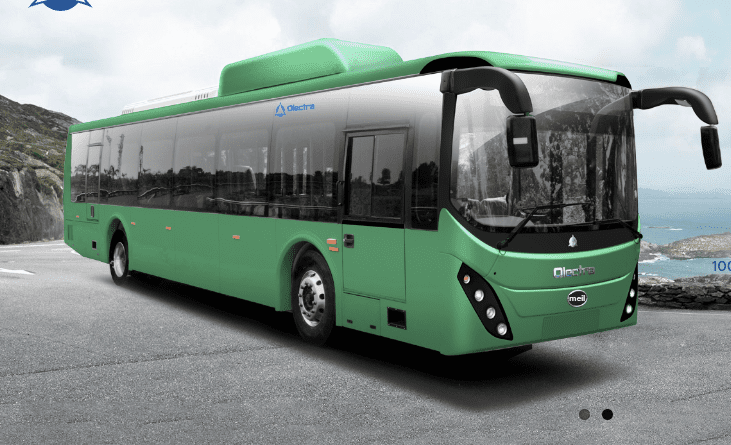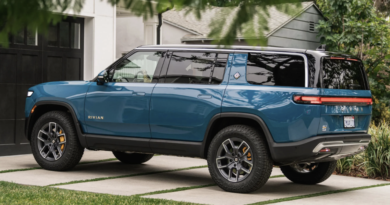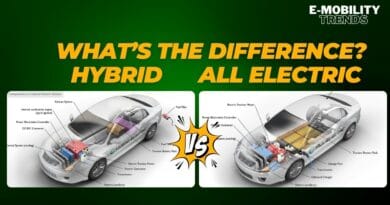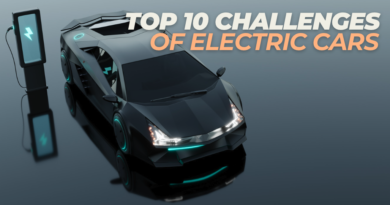Electric Buses: Bright Future in Public Transport Fleets for India
Overview:
Pune is the 2nd largest city and cultural capital of Maharashtra (India) having the second major Information Technology (IT) hub of India. Pune witnessed significant growth and progress in the field of education, healthcare, industry, real estate, art &culture and socio-economic aspects. The various automobile and other engineering companies are also sprouting in Smart city of Pune which is recognized as eighth-fastest city in implementing its Smart City Plans.
Traffic congestion:
Pune is thickly populated city usually facing traffic congestion problem on roads in busy areas during particular hours due to crowding of small, medium and large transportation vehicles including significant number of motor bikes and rikshaws. It results into displeasure among travelers and also environment degradation, air and sound pollution and low fuel efficiency. The option of introducing electric vehicles (EVs) to a traditional internal combustion fleet (Diesel/ CNG fuel) have immense importance under this situation.
Passenger vehicles:
Record 3.07 million passenger vehicles were sold across India during 2021-22 compared to 2.71million units sold during 2020-2021thus recording 13 per cent rise over 2020-2021. During FY 2021, highest new vehicle registration ie 282330 units was contributed by the state of Maharashtra. This shows that there is wide scope for going to electric vehicles (EVs) for harvesting their following advantages.
Electric Vehicles Benefit:
- Reduction in greenhouse gas (GHG) emissions
- Protecting the environment quality
- Freedom from reliance on volatile oil and gas prices
- Passenger feels more secured, comfortable and enjoy the journey.
- Sizable saving in operating, maintenance and fuel costs
Electric Vehicle Policy:
According to a report by P&S Intelligence, by 2025 the electric bus market in India is foreseen to reach over 7,000 units with a CAGR (Compound Annual Growth Rate) of 53 % in the period 2018 – 2025. The Maharashtra State Government, Electric Vehicle (EVs) policy 2021 envisage, that new vehicles leased for government use must be electrical, from April 1, 2022 . Domestic electric bus (e bus) market in India is nascent however national projections indicate, 4 out of 10 buses sold in country could be electrical (e bus) by 2030 and 30% of all cars sold in the country be electric by 2030.
Electric Vehicles (EV):
The people are gradually preferring electric vehicles. In 2021 EVs sold in India (329190 units) recorded 2.685fold increase over that of 2020 (122607 units). Amongst the EV sale, the major share (93 %) was by the two and three wheel vehicles where as remaining share (7%) was due to 4 wheeler, buses and other vehicles. During 2021, Uttar Pradesh topped the list of EVs sold in India (66704 units), followed by Karnataka (33302 units) , Tamil Nadu (30036 units)and Maharashtra (29860 units).However, the EVs four wheel category (3743 unit) and buses (552 units) were sold highest in Maharashtra. Pune has contributed a pioneering role in the Maharashtra state in introducing electric buses in the public transport system.
Conventional and Electric Buses in Pune:
Bus is one of the important public service system in Pune. Earlier after 1940s the system started with 4 routes and 20 buses which increased up to 46 buses in 1948. The Pune Municipal Transport (PMT) civic body then continued the system with fleet of 57 buses those plied on 14 routs from 1950. The public transport provider namely Pimpri Chinchwad Municipal Transport (PCMT), was formed to meet the needs of industrial area in the city. From 1974 they stared with a fleet of 8 buses plying between Pimpri and Bhosari. PCMT saw rapid expansion and it had a fleet of 101 buses plying on 13 routes up to 1988.The merger of PMT and PCMT took place in April 2007 and further named as Pune Mahanagar Parivahan Mahamandal Limited (PMPML) to take care of public transport needs through buses within the city and its suburbs. PMPML has a fleet of 1450 buses maintained at 13 depots providing facility to over 1200,000 passengers every day .
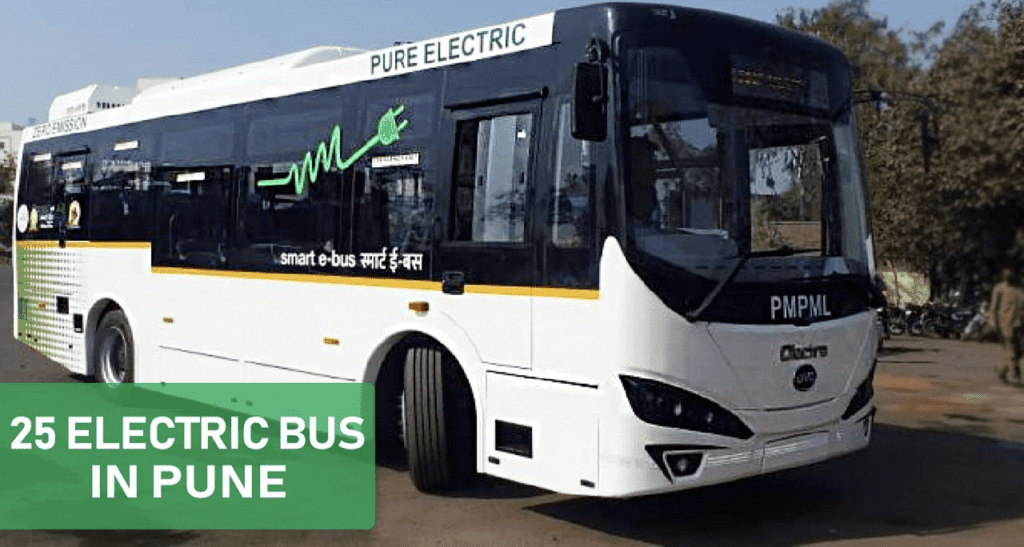
PMPML
he PMPML in addition to its conventional internal combustion fleet, currently have 220 e-buses operating in its fleet of 2,169 buses — one of the largest municipal e-bus fleets operating in India. Once PMPML commissions the remaining 430 e-buses , may be before August 2022 , Pune will be on track to meet the target outlined in the state government’s electric vehicle policy — 25 percent electrification of the public transport by 2025 — three years ahead of schedule. Under the Faster Adoption and Manufacturing of Electric Vehicles(FAME) ,India Scheme, Phase II programme,81 new electric buses have been included very recently (May,2022) in the PMP fleet for giving further push to clean mobility in public transportation. These buses will provide more comfortable transportation to about 70000 passengers every day.
BYD -Olectra Buses
The PMPML experienced the BYD -Olectra buses in the public transport fleets in last couple of years. The Olectra Greentech Ltd is a pioneer in e-bus manufactures in India as a joint venture with BYD. They have already supplied e – buses to Pune. The e-bus Model e Buzz K9 is 12 m, 2.6m and 3.8 m in length, width and height, respectively. The seating capacity is 39 plus Driver with a peak load of 60 passengers (Siting plus standing) on board . Buses are powered with its self-developed lithium iron phosphate battery, featuring a typical operating range of 250 kilometers (160 mi) per charge under urban road conditions. The battery capacity is 380 kWh and it can be fully charged around 4-5 hrs. The buses are airconditioned and are equipped with CCTV cameras and also an emergency button for each seat along with USB Sockets for passenger comfort and safety.

BEST Mumbai
Brihanmumbai Electric Supply and Transport (BEST) is the company that primarily operating the public bus transport center in Mumbai. Besides, in the municipal area of Navi Mumbai (NMMT), Thane (TMT) and Mira- Bhayandar (MBM) the respective municipal transport body operate the bus transit for public.
BEST, which is the second largest mass transport system after the suburban train network, has planned to have its entire fleet – around 3,500 buses –phase wise replaced with electric ones to the extent of 50 and 100 per cent by the year June 2023 and 2027, respectively. BEST is currently operating 386 A.C. electric buses. The first batch of 525 new air-conditioned (AC) electric buses will arrive in the city by December this year. These will be part of the deal signed with Olectra Greentech Limited, a Hyderabad-based electric vehicle company, to deliver 2,100 electric buses over a period of 12 months (June 2023) to BEST.

MSRTC:
Maharashtra State Road Transport Corporation (MSRTC). It is a public transport system working at a state level aiming to satisfy transport needs of public in all parts of the state. The MSRTC have a plan to introduce around 1000 electric buses in their routine transport system out of which 150 electric buses will start soon from June 1, 2022 in the name of SHIVAI. The Pune city and the state of Maharashtra thus will have a leading role for using airconditioned electric buses in their transport system for rendering happy journey to their masses.
Thus airconditioned electric buses are very much comfortable, smoother and free from noisy and dust conditions resulting into public happy journey. The driving experience is also great. Besides, there is net emission saving of fine particular matter (PM 2.5 ) and carbon dioxide (CO2) compared to diesel buses/petrol fueled cars thus protecting environment. The economic, viability considerations of e -buses by PMPML also revealed that there is saving in operating, maintenance and fuel costs too. Therefore, introducing airconditioned, electric buses in public transport fleets possess very wide scope and showed multifaceted advantages for planners, transport providers, passengers and stakeholders to make public journey more happy and much comfortable.

